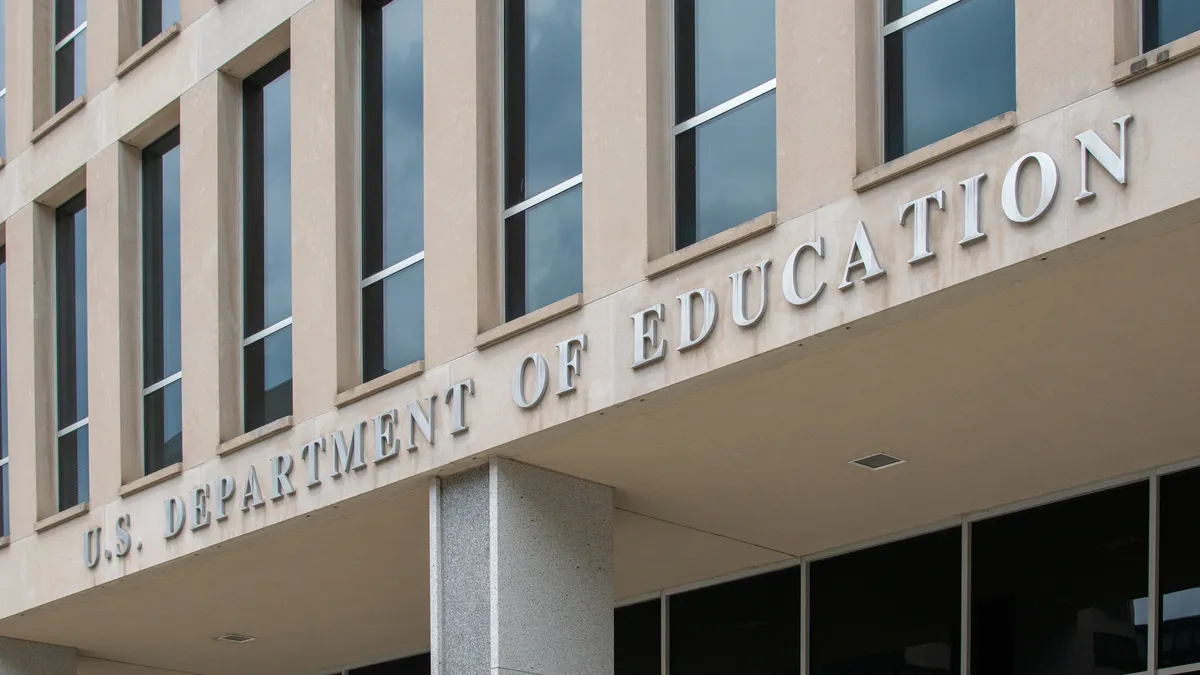Editor's note: It's harder than ever for colleges to fill their incoming classes, but some schools are meeting that challenge with creativity. In this regular column, called The Pipeline, we'll spotlight innovative tactics colleges are using to cut through the noise and reach prospective students throughout the recruitment and enrollment process.
When Clinton College announced over the summer that it would slash tuition by 50%, the small historically Black institution made headlines in its home state of South Carolina and throughout the nation.
At the time, the deal seemed hard to top.
Yet the HBCU outdid itself just two months later, when Clinton President Lester McCorn streamed a live online announcement that the school would waive tuition altogether for incoming and returning students during the 2021-22 academic year.
"Did you hear me?" McCorn asked in the video. "Free tuition. That's a 100% discount."
Moreover, the school is giving every full-time student a free Microsoft Surface laptop so they can attend online classes even if they don't have a computer.
McCorn and other Clinton administrators cast the moves as a way to help students afford college during the health crisis, especially if their families are experiencing economic turmoil.
"We do understand at this time during the pandemic that some families are suffering financially," said Jocelyn Biggs, Clinton's associate vice president of enrollment management. "This is our way of saying that we're here to support and not be a burden on anyone."
The school is paying for the one-time initiative with help from the American Rescue Plan, the third major federal coronavirus relief package that gave colleges about $40 billion to defray pandemic-related expenses and provide emergency grants to students.
Clinton received $1.2 million in funding from the legislation, half of which it must use on student grants. That amount is similar to how much the college brings in from tuition and fees each year, according to tax documents.
In the 2020 fiscal year, the school brought in $1.4 million in tuition and fees. That figure was down from the year prior, when it received nearly $1.9 million in tuition and fees.
Students won't have to pay the nearly $10,000 annual tuition rate this year at Clinton, though the majority of them already historically received institutional grants or scholarships, according to federal data. More than three-fourths of first-time undergraduates starting at Clinton received institutional grants in the 2019-20 academic year, with the average aid package being almost $3,700.
Nearly all undergraduates also received Pell Grants that year, with the average award totaling around $4,600. Clinton enrolled 190 students in the 2019-20 academic year, federal data shows.
Students will still be on the hook for room and board costs if they live on campus, however. Room and board totals around $10,000 a year for students, according to Clinton's website. The school brought in almost $600,000 in revenue from this source in fiscal 2020, down from about $900,000 in fiscal 2019.
Students may be able to use federal financial aid, such as Pell Grants, to cover part of those costs.
So far, the deal has been an enrollment boon for the college. Biggs said student interest in the offer was so high after the announcement that the college extended its registration deadline by about a week. This fall, a total of 155 students enrolled, a college spokesperson said. That's up from 119 students in the fall of 2020, according to federal data.
Biggs' email was "going crazy" after the announcement, she said. "Everybody just wanted to know more."
Two public institutions in the state are taking similar steps. Spartanburg Community College is offering tuition-free scholarships to students for the 2021-22 academic year as a "gift to the community" during the pandemic. However, unlike at Clinton, students must exhaust all other grants before the school will cover the remaining tuition. Such setups, called last-dollar programs, make it less likely that students will have leftover funds from their Pell Grants to use on nontuition expenses.
And Denmark Technical College, another historically Black institution, said it would offer free tuition to the first 500 students who enroll for the fall term. It's paying for the program with a mix of donations and money from the state lottery, The Associated Press reported.
"We do understand at this time during the pandemic that some families are suffering financially. This is our way of saying that we're here to support and not be a burden on anyone."

Jocelyn Biggs
Associate vice president of enrollment management, Clinton College
Clinton's program is "unusually generous" and will likely free up some students to apply their financial aid to nontuition costs, Alex Bloom, director of the research division at EAB, a consultancy, said in an email. That "could be the difference for many of their students between being able to afford going to college and not," he said.
However, Bloom voiced concerns about the school's ability to keep students enrolled who could only afford to attend Clinton because of the free tuition offer.
"Making one year free will help a lot of students," he said. "But if those students can't pay for next year, there's still a major challenge."
But college officials aren't as worried about that outcome. The free tuition offer will give families time to save up for the next academic year, Biggs said. Financial aid will still be available for students in the future, she added.
"I don't see that impacting us," Biggs said.























